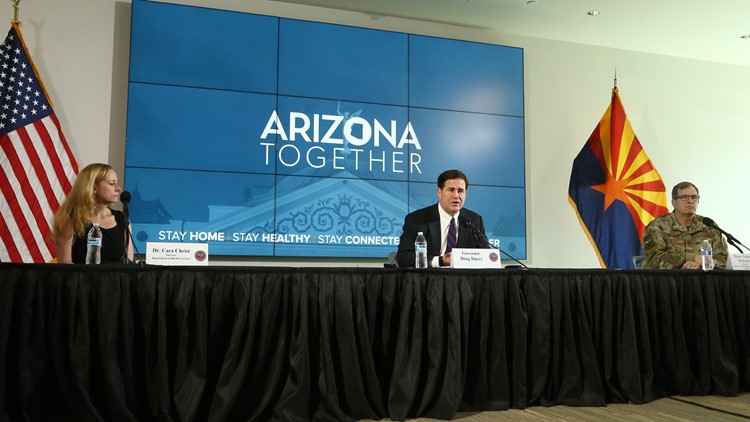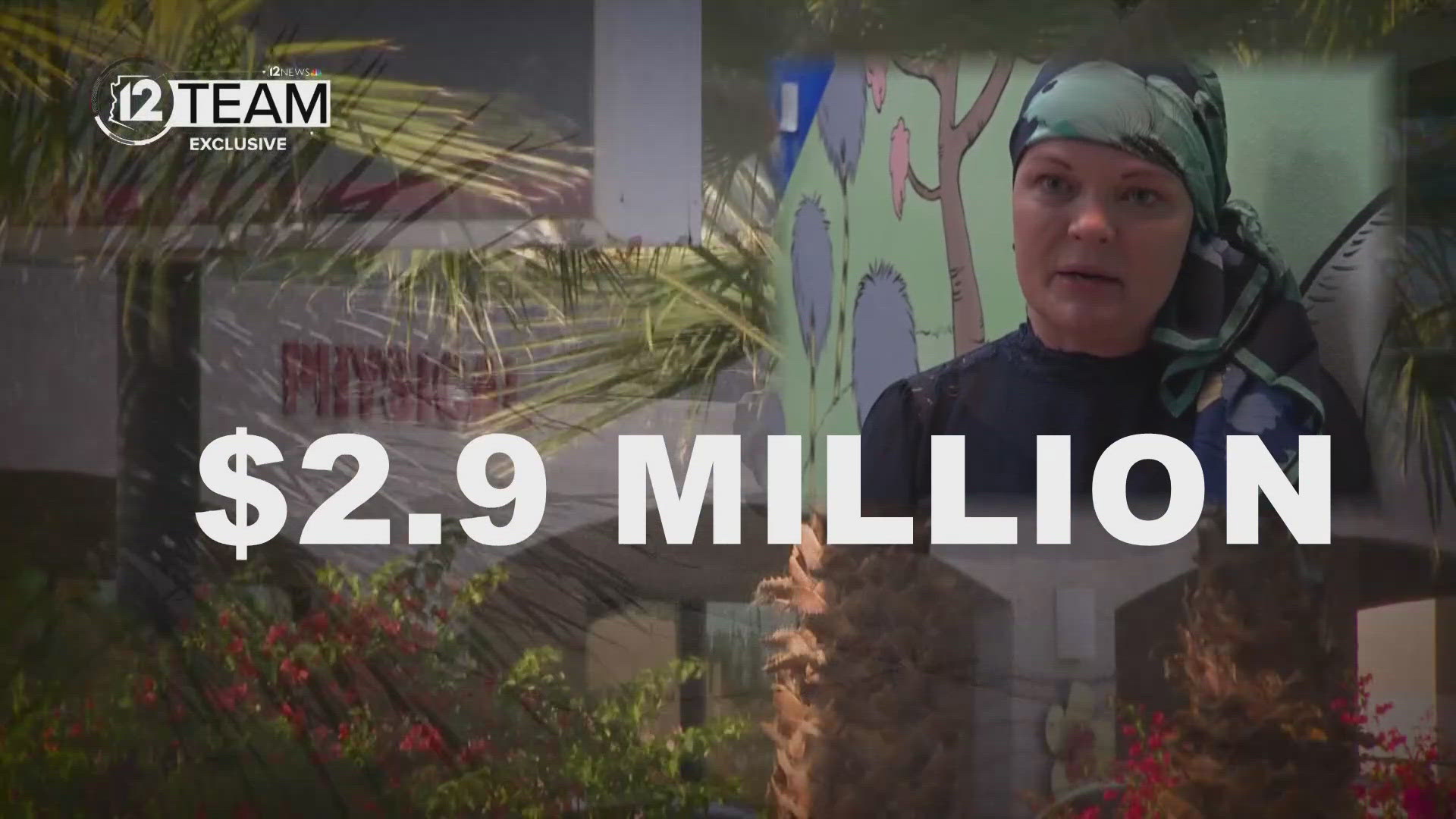PHOENIX (AP) — A judge presiding over a lawsuit seeking the number of COVID-19 cases and deaths among residents at Arizona’s nursing homes says he understands the public’s need for disclosing such information but he also sees the state’s concerns in withholding the data.
The lawsuit filed in early May came after weeks of questions and concerns about how many nursing homes have been severely impacted by the spread of the virus in Arizona.
12 News is asking for public records that show the number of nurse home residents that have tested positive for coronavirus and the number of individuals who have been taken to and from the hospital as a result.
"These public records containing the COVID-19 Data are integral to the public’s ability to monitor the safety of Arizona’s elderly and infirm population," the suit says.
Maricopa County Superior Court Judge Christopher Coury, who heard arguments Wednesday afternoon in the case, said he was struggling with the notion that the public shouldn’t be informed about providers that don’t meet the standard of care.
But he also expressed skepticism at the argument by news organizations that filed the lawsuit that releasing such information wouldn’t harm the competitive positions of nursing homes.
“There are meritorious positions on both sides,” said Coury, who plans to issue a ruling by the end of the week.
RELATED: 12 News, other Arizona media file suit for records of nursing homes with coronavirus outbreaks
State officials have refused requests from news organizations to release that information, as well as the locations of the positive cases and deaths and the number of transfers of nursing home residents to acute care facilities.
Lawyers for the state maintain the information is confidential under several laws, including one barring the release of information during a pandemic that could substantially harm the competitive positions of businesses. The news organizations, which sued the state three weeks ago in a bid to get the information, said the records would help the public evaluate the safety of nursing homes.
Dr. Cara Christ, the state’s top public health official, has previously said she wouldn’t release the information without a court order, explaining that disclosing the locations of the positive cases and deaths would in effect reveal the addresses of nursing home residents.
A few Arizona nursing homes have confirmed to news organizations the number of COVID-19 cases and deaths among their residents.
Maricopa County also has reported that more than 270 residents in long-care facilities — which includes nursing homes, assisted living facilities and hospices — have died from the virus, accounting for about 70% of the COVID-19 deaths in metro Phoenix.
The lawsuit was filed in early May by 12 News (KPNX-TV), The Arizona Republic, CBS 5 (KPHO-TV), Azfamily.com (KTVK) and ABC15 (KNXV-TV) against the Arizona Department of Health Services and Christ, the agency’s director.
Even though the news organizations haven’t asked for the names of nursing home residents, lawyers for the state argue in court records that residents could still be identified if the information were provided to news organizations, saying “enterprising individuals who wish to identify those suffering from COVID-19 will be able to do so with minimal work.”
David Bodney, an attorney representing the news organizations, said the state has failed to prove how providing statistics on cases will lead to the identification of nursing home residents. “We are seeking only aggregate facility-level information, not names,” Bodney said.
The news organizations said the state has misrepresented the content of the public records requests by claiming they were seeking the identities of residents and said the state has always had the option of redacting sensitive information before releasing records.
The news organizations said the state is taking an overly broader interpretation of state laws to prevent the information from being released.
Craig Morgan, one of the attorneys defending the state, said Arizona law makes information related to communicable diseases private. “This information is highly confidential. It affects so many lives,” Morgan said.
The state argued disclosing the information would conflict with the Department of Health Services’ policy of promoting trust among its community partners and may lead to stigmatization of some nursing homes.
The state’s lawyers cited staffing difficulties and other problems that resulted from the unfavorable publicity that a long-term care facility in Phoenix received after one of its nurses was charged with sexually assaulting an incapacitated 29-year-old woman who later gave birth at the facility. Coury said he didn’t find the state’s example involving the long-term care center to be persuasive.
The news organizations said the state has offered no evidence showing that releasing the nursing home information would inspire the sort of negative reaction that the long-term care facility faced.
Across Arizona, more than 17,000 coronavirus cases leading to 831 deaths had been reported as of Wednesday.
For most people, the coronavirus causes mild or moderate symptoms, such as fever and cough that clear up in two to three weeks. For some, especially older adults and people with existing health problems, it can cause more severe illness, including pneumonia and death. The vast majority of people recover.
12 News contributed to this report



